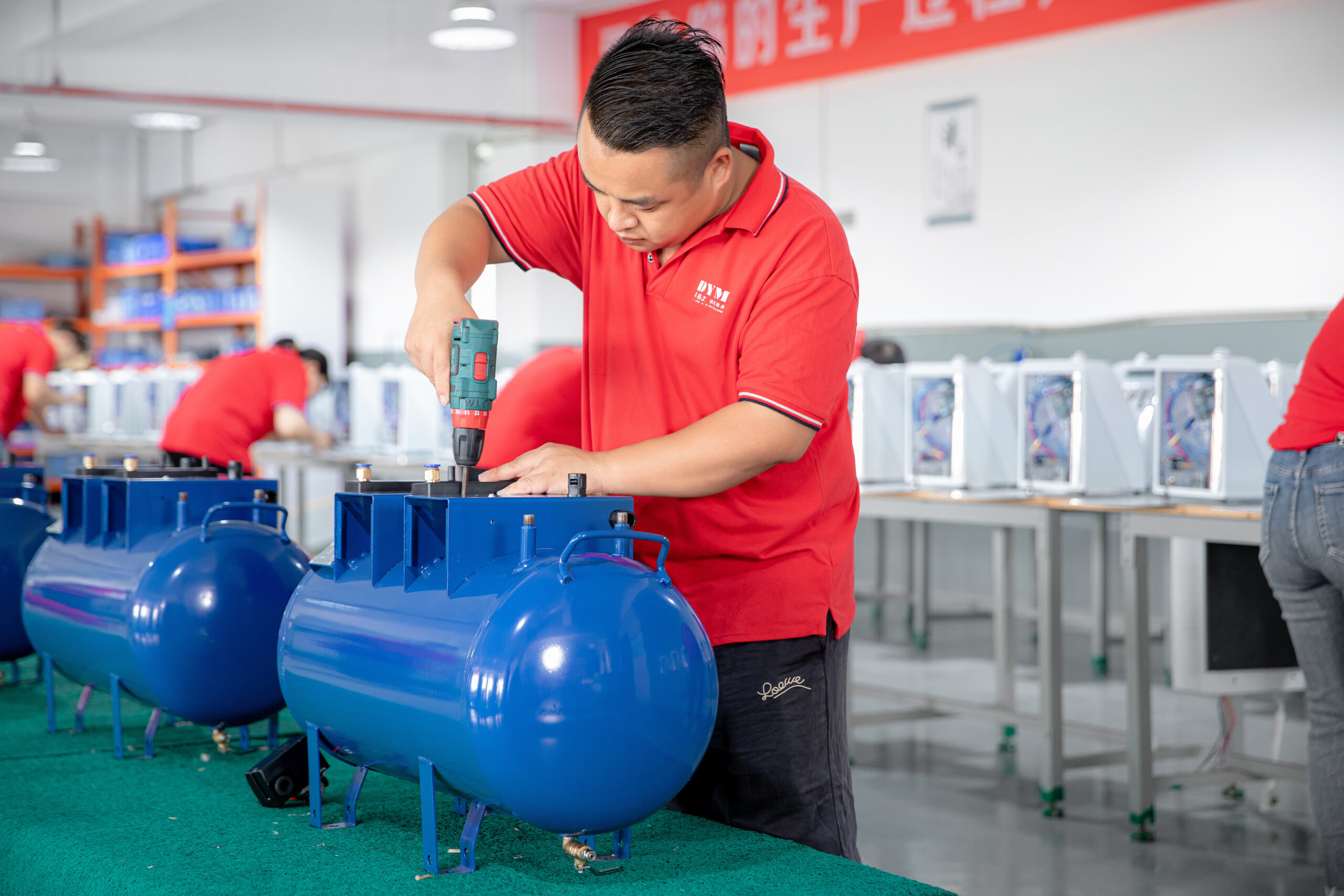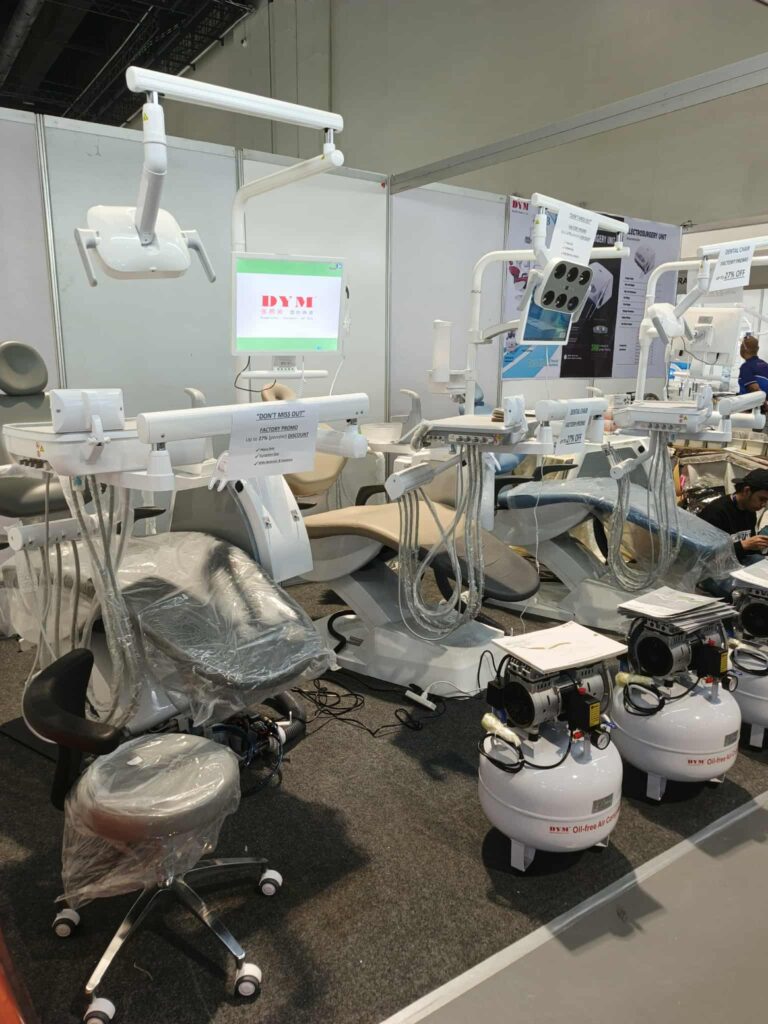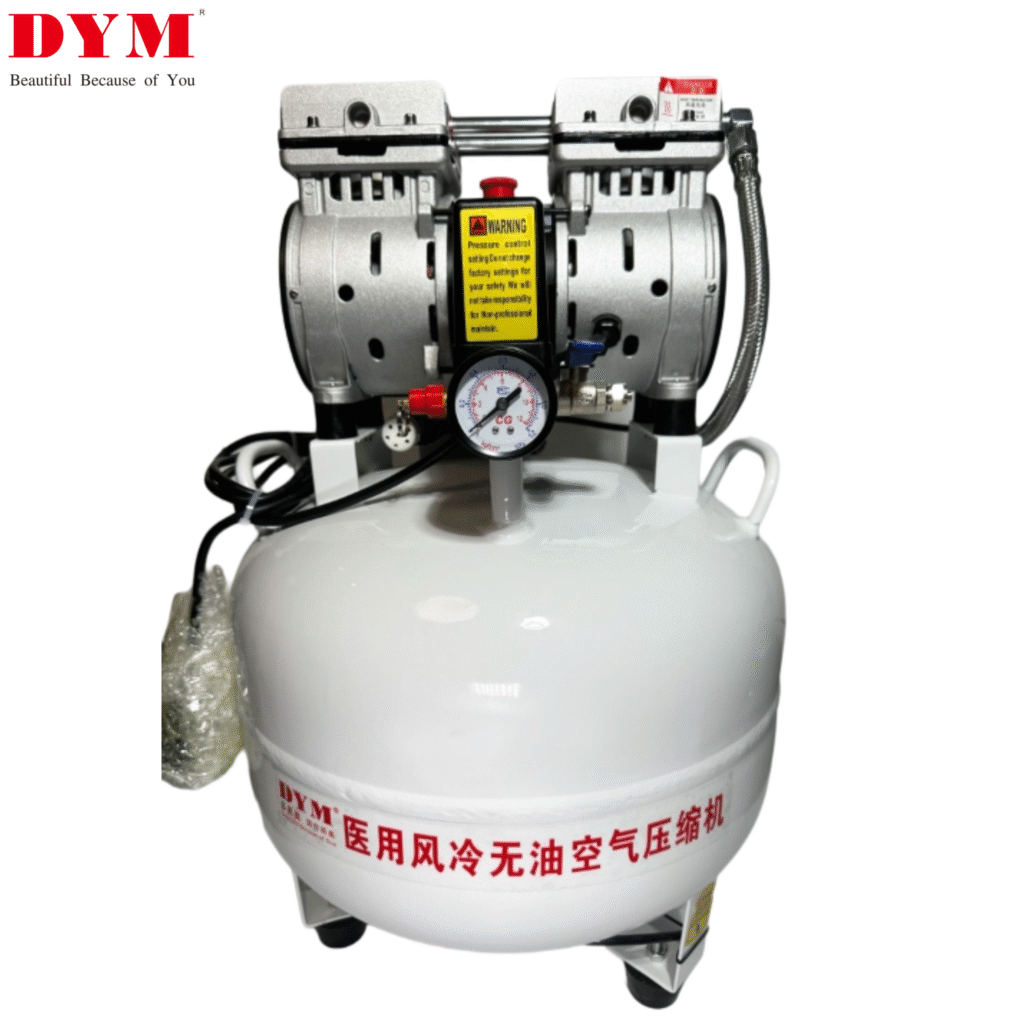Ask For A Quick Quote
We will contact you within 1 working day, please pay attention to the email with the suffix “@fsdym.com”.
We will contact you within 1 working day, please pay attention to the email with the suffix “@fsdym.com”.

DYM Oil-Free Air Compressor shares with you how to properly use and maintain an oil-free dental air compressor in a dental clinic.
In modern dental clinics, the efficiency, reliability, and comfort of dental equipment directly impact the quality of treatment and patient comfort. As a professional manufacturer of dental equipment with 18 years of production experience, DYM understands the core role of dental air compressors in the clinic. They not only provide power for common functional equipment such as dental chairs, dental handpieces, three-way guns, and pneumatic scalers, but are also crucial to ensuring a smooth dental treatment process. Given the current high standards for dental compressors in dental clinics (such as low noise, energy conservation and environmental protection, intelligent control, automatic drainage, long life, and easy maintenance), a stable and reliable dental air compressor is the dream equipment for many dental clinics.

Part 1: Why are air compressors so important in dental clinics?
A dental medical air compressor is a type of air compression device specifically used in dental clinics. It provides air for dental chairs, high- and low-speed handpieces, pneumatic scalers, sandblasters, three-way guns, and other dental equipment requiring air for normal operation. 2. How does a dental oil-free air compressor work?
It compresses air and simultaneously increases its pressure. This compression produces water vapor, which can leave a lot of water trapped in the tank.
Four: What is the difference between DYM silent oil-free compressors and commercially available air compressors?
DYM Medical understands that every dental clinic is deeply concerned about the quality and stability of their dental equipment, as it is the “heart” of a dental clinic. Therefore, we have invested significant effort in our oil-free air compressors. Our silent oil-free compressors utilize copper coil starter heads, which can meet the dental clinic’s need for a stable air supply without overheating over time. We offer the SKI series of compressors in different sizes: one, two, three, four, six, and ten, providing a variety of options for different dental clinics. Our compressors with three or more heads are designed with independent bases, each with an independent power switch. This ensures that even if a handpiece suddenly stops working, normal operation of the clinic remains unaffected. This contrasts with traditional designs where each compressor has a single power switch. Failure of one power switch per compressor can paralyze the entire clinic and prevent it from continuing to serve patients, leading to numerous complaints. Because copper dissipates heat quickly, it’s more energy-efficient and environmentally friendly, eliminating the need for frequent power cycles. Maintenance costs are relatively low, requiring only weekly draining. Replace the compressor cups approximately once a year for smoother, quieter operation.
SKI series compressors come with a one-year warranty, and our technical support team provides one to three technical support visits annually, ensuring consistent product quality and reliable after-sales service.
We manufacture and inspect air compressors in accordance with international ISO9001 and ISO13485 production management systems. Our air compressors undergo 26 production processes and 10 inspection steps (including noise testing below 60 decibels, ensuring the tank is leak-proof, ensuring valves are leak-proof, ensuring the compressor head is stable, ensuring the pressure gauge displays normal pressure, ensuring the tank is clean of impurities, ensuring the tank feet are stable, ensuring the pressure reducing valve is leak-proof, ensuring the power cord does not overheat, and ensuring no abnormalities during startup). These steps ensure that no defects are present before release. V: Daily Operation and Maintenance Recommendations for Dental Air Compressors
